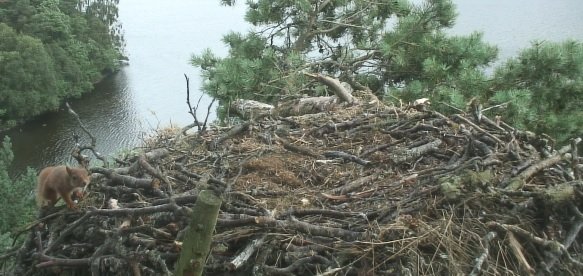Original Author: Emma Rawling, Project Officer for South West Scotland
How many different red squirrels are visiting your garden, park or wood? Have you ever tried to distinguish and identify them? Well, here’s how you can – why not give it a try this winter?
How many different red squirrels are visiting your garden, park or wood? Have you ever tried to distinguish and identify them? Well, here’s how you can – why not give it a try this winter?
Red squirrels have many different coat and tail colours and patterns, and they can vary from very pale blonde to almost black, with some coat colours being more common in local areas. Take a photo of each of your red squirrels – try to get clear shots, ideally in a similar position such as at a feeder, with a good view of the tail as this is often the most distinctive part of the squirrel. You can compare them and create your own photographic ID chart for your local squirrels.

However, remember squirrels do moult (spring and autumn) often with surprising colour changes, so you will need to redo your chart each year. Their distinctive ear tufts are often gradually moulted in the summer, to be replaced at the same time as the new tail fur in the autumn, so it’s easiest to start your chart in winter. Here is great example of such a chart, complete with nicknames assigned to each animal, which was put together by our friends at the Scottish Wildlife Trust’s Loch of the Lowes reserve – a great place to see red squirrels.
Can you spot any unusual coat colourings or markings in your local squirrels? Why not share them with us on Facebook?
